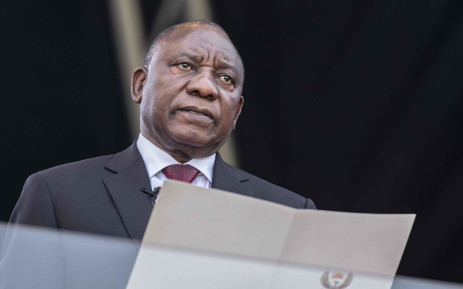“I regret and apologise for what happened in South Africa”
SOUTH African President Cyril Ramaphosa has apologised for the xenophobic attacks that took place in his country, which left at least 12 dead, injured others while properties belonging to foreigners were destroyed and looted.
Hundreds were also arrested after mobs attacked foreign-owned shops in Johannesburg and Pretoria in the past weeks.
Ramaphosa made the apology before other heads of state and dignitaries, as he passed his condolence message at the national funeral service of the late Robert Mugabe at the National Sports Stadium in Harare, Saturday.
“For the past two weeks, we have had episodes of violence in some parts of our country which has caused death to fellow Africans,” said the South African leader.
“I regret and apologise for what happened in South Africa,” he added to the cheer and clapping of the crowd in the stadium.
Mourners had earlier on booed the South African leader when he was making his way to the podium.
The xenophobic attacks drew condemnation from across the continent, causing Zimbabwe and Nigeria to evacuate some of their people while other countries boycotted the World Economic Forum on Africa summit in Cape Town.
Before his address began, when he was making his way to the podium, Ramphosa was booed and jeered by the crowd, prompting one of the pastors to intervene and ask the crowd to calm down.
The booing from the stadium against the South African leader was possibly due to the xenophobic attacks that were committed by his people.
Undeterred, Ramaphosa took to the podium and began detailing the contribution of the late Mugabe but the tension did not die away forcing him to tackle the issue of xenophobia.
He assured people that South Africa is not xenophobic and said what had happened was regrettable.
“We are working very hard to encourage our people to embrace people from all African countries and the events that unfolded are regrettable.”
The latest wave of xenophobic attacks was grounded by the belief that foreigners—mainly migrants from other African countries were to blame for South Africa’s social and economic woes.

